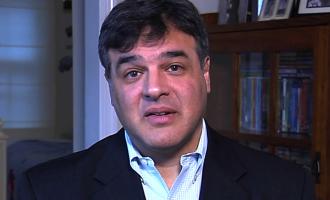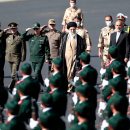The Chinese communist government has a legacy of cracking down on intellectuals, scholars, and academicians in an effort to discipline them. From Mao to Xi Jinping, the trend continues though the scale may vary in terms of the amount of force, censure, manipulation used and the nature of threats posed given the Chinese ambitions to grow in strength not only within their country but also across the globe.1
Across different colleges, institutions, and universities, there is a noticeable presence of Chinese origin students, academics, teachers, research scholars & scientists. In recent times, China has effectively used this vast network of seemingly innocuous professionals to expand its influence operations worldwide to build a favourable opinion about China in university circles, college campuses, and prominent
educational establishments. These individuals, groups, and associations are tasked with manipulating rational conversations, examining foreign students suitable to China & suppressing any kind of intellectual investigation into areas not suiting Chinese China, particularly Xi Jinping, wants to be on the winning side in this battle of perceptions
In the process, any opposition to China within its borders or even outside is being brutally suppressed. However, to legitimize acts of violence and give it a sense of purpose, China has understood the game of utilizing the services of intellectuals and thinkers, both at home and abroad. As a manifestation of how the Chinese manipulate the realm of academia, one can take the example of the renowned Cambridge University Press which at the behest of China gave instructions to block online access to more than 300 politically sensitive articles on China that were catalogued in its leading China-centric journal. Apparently, Chinese authorities had
warned them to take swift action & block these pieces or cope with some very unfavourable consequences.
To the world of free press and academic freedom, it was shocking to see a publishing giant of the stature of the Cambridge University Press (CUP) to cave in to the Chinese diktats and start eliminating the articles & commentaries that dealt with issues critical of Chinese actions such as in Tibet, the massacre at Tiananmen Square, etc. The CUP is alleged to have done this keeping the financial aspect in mind since offending China would mean loss of capital which is otherwise an important source of funding.
The various corporations associated with the premier universities also did not want to rub China on the wrong side as this was likely to have unpleasant monetary repercussions.
After much uproar over the decision taken in the interests of profits above academic
independence, the CUP finally overturned this self censorship; but this was not without a fair share of Sinologists calling the actions dishonourable and spineless.
.
Nevertheless the return of the CUP to accepted academic values and principles was hailed by many experts as a comeback. However, what this whole disturbing episode does highlight, is the kind of intense pressure being faced by several foreign universities, publication groups, industry associations and managements from
Chinese agencies.
The choice exercised by the CUP of removing the articles from the China Quarterly journal was not simply a matter affecting a very small academic community or only students inside the sovereign boundaries of China. More blatantly, it was directed as a warning to the entire intellectual community and the academic fraternity by targeting one of the most prestigious global universities, that the themes that are barred from
study /discussions should not be engaged in without the specific approval of China.
This narrative building exercise is being done at a time when the wolf warrior diplomacy8 and aggressive posturing of government officials within the Communist Party of China is evident across Australia, India, Asia, Africa, Europe and even the US. Academics from all around the world are worried about the cumulative impact maneuvers of the Party affiliated individuals and organisations will have on diverse educational campuses & the impressionable youth that dominate this space. Their instruments are multidimensional ranging from engaging influential Chinese entrepreneurs, grant or aid funding by the Chinese State government, or showing high-
level objections in the course curriculum or study groups crafted independently by lecturers.
So far, the response of the Chinese establishment has been typical to the CUP episode largely lingering on aggressive threatening. There is distress within the fraternity that campuses will gradually be pressurized into serving the Chinese
Communist party's mandate, succumbing to their narrow interpretation of political correctness or bearing the risk of losing profitable business prospects. What is particularly worrying about the Cambridge case is also that such collaboration with
Chinese censors could have a huge impact and lasting repercussions far beyond China's borders.
In an era of populism, to gain access to markets, even large corporations are abiding by the Chinese rules and terms of engagement. For instance, bigger conglomerates like Apple in order to register their compliance to the authorities have lately removed VPN (Virtual Private Network) based app store applications in China that otherwise aid users in circumventing the Chinese "Great Firewall". Chinese authorities typically with deep pockets, a style of cheque-book diplomacy, or through some other mechanism of offering finance, grants, aids, or infrastructure development exploit the greed of these financial entities. Those who do not fall in line are threatened with losing the market and facing dire economic consequences.
The popular search engine Google which initially tried to compromise with the authorities on censorship eventually gave up on the same and quit China owing to criticism in the West. No doubt
companies feel the pinch as reputational damage along with economic costs are add ons to such acts of bullying and economic coercion that are used by the Chinese to
get away with almost everything.
Within the space of universities, calling out academicians, penetration of authoritarian impulses with censorship, Chinese agenda-driven discourses, or focused propaganda through specific course content have had a significant impact.
The arrival of hardcore Chinese political ideologies, norms, and practices in everyday teaching and an attempt to influence young minds with the Chinese perspective on issues has been a wake-up call of sorts for members of the academic community. The Chinese brand of politics with its fair share of controversies should not be disturbing the piousness of educational realms. However, most of the times, ‘experts’ are being sought to issue
statements, make remarks, conduct research and profess a certain perspective as part of clean up drive or the propaganda of the State.
As such, the Chinese Communist Party government will continue to attempt influencing the academic realm, export its influence and exploit public relations as part of its propaganda tactics in the world's leading universities. In most of these cases, the content and direction of the narrative is vetted by the Communist party representative dealing with media communication. In fact, The Global Times, the official mouthpiece of the CCP mentions that matters of propaganda will not be guided by moralities but by commercial and governmental clout. Authorities in China seem to be clear that this is a struggle for power and that they need to be in a position of supremacy from where they can manufacture narratives as per their will and strategy.
Many foundations and institutions of higher education around the globe with links to Chinese leadership, or with huge student population of Chinese nationality, are actually ill-equipped to take on this kind of penetrative propaganda. Not many have the wherewithal or the capability to defend academic independence in opposition to sustained China generated obstacles, for example, visa bans on researchers, calling out their publications as biased, refraining from sending Chinese students to these universities which automatically impacts the finances of these institutions or
maintaining a schizophrenic surveillance and forcing self censorships on publications
and events in their campuses.
The China Director, Sophie Richardson of Human Rights Watch argues that "Colleges and universities that stand together are better equipped to resist Chinese government harassment and surveillance on campuses, visa denials, and pressures to censor or self censor. Most important, they will be better prepared to ensure academic freedom on their campuses for all students and scholars, particularly those coming from China.
Human Rights Watch studies also discovered that the Chinese leadership tries to constrain academic liberty beyond its boundaries. The organization proposed a Code of Conduct for responding to such difficulties in safeguarding the integrity of educational establishments. The code essentially aimed to defend intellectual autonomy with student’s rights, academic development and support for those who
work on China related issues.
Along with the academic community, the Human Rights Watch has highlighted various dangers to intellectual autonomy of researchers, journalists, media and other civil society figures stemming from the motivated meddling of the Chinese government. Chinese agencies have long scrutinized this segment of liberal speakers, primarily students and professors from China and those exploring themes related to China through different mediums around the world. Interestingly, Chinese ambassadors have also used their diplomatic instruments and their designation for complaining to university administrators about holding lectures or hosting speakers who do not approve of Chinese authoritarian governance. There seems to be a persistent paranoia amongst Chinese officials and those affiliated to the Party about even a mention of issues related to Tibet, Taiwan, Hong Kong, South China Sea, Line-of- actual Control, Xinjiang's Uyghur Camps, party dissidents, or critics of the Communist government.
Students, experts, professionals engaged in bringing out the truth of China before the world, particularly the Chinese who live outside China fear threats to their families back home for their honest works in the academia, speeches, writings, or even upfront reporting. Academics from China are detailed with instructions by Chinese executives and openly intimidated even when outside the country to desist from condemning in
any manner the actions, policies and personalities of the Chinese Communist Party.
It has been commonly witnessed in students from China that they maintain an unusual reticence on political issues in classrooms, are largely frightened that their discourse was being observed and that the same can be reported to Chinese security agencies with potentially dangerous consequences.
Such is the extent of the Chinese influence at self censorship that many a times prestigious premier universities cancel programmes, remove references of presenters,
or interfere with content considered sensitive & against the Chinese government.
These incidents are happening in major American and European campuses, as the management there fears losing out on the growing number of students from China & consequently the income from it. Many academics also hold fears of being deprived of visits to China for their research, of access to primary literary resources, or funds; simply by posing questions to students or scholars from China or discussing issues
considered controversial by the Communist government.
Over the last couple of years, many experts have also voiced their anxieties over the existence of Confucius Institutes on their campuses which are alleged propaganda building extensions of the Chinese government.17 Confucius Institutes, which are essentially international garrisons of China's Ministry of Education that offer courses in Chinese language and culture have become subjects of controversy due to their
undue interference in determining the way universities function and influencing young minds.
Their presence has fundamentally compromised the institution's loyalty to academic independence, specifically when Confucius Institutes have been set up in campuses without due consultation and consideration of faculty. Many United States universities like Chicago, North Carolina State University, and Massachusetts are considering or have already sought closure of these Confucius institutes in the interest
of preserving their academic freedom, autonomy, and neutrality.
Undoubtedly, the internationalization of higher education has in a way facilitated authoritarian nations to discreetly universalize their routine methods of censorship and political despotism amongst civil society, media and academicians across the world.

Κόσμος
Ενημερώθηκε στις:
Censoring Global Academics: The Chinese Way

Ακολουθήστε το Πενταπόσταγμα στο Google news













